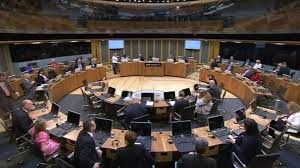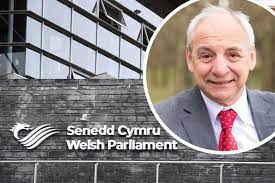- Massaging the truth - 27th February 2026
- ‘It’s the new economy, stupid…’ - 27th February 2026
- Eyes right… - 26th February 2026

During 23 years with the BBC, and a 42 year journalistic career (when he was trained to use clear and simple language, avoiding jargon), for our Editor, Welshman Phil Parry monitoring major political changes has always been paramount, and now with plans announced enabling 16 year olds to vote, the biggest one of all could be on the cards – Proportional Representation.
Be under no illusion – political self-interest often comes into major policy announcements.

An example is the Labour UK Government offering proposals for 16 year olds to be allowed to vote at the next General Election (GE), because they think (amid other more public reasons) that young people will tend to vote for them.
The pledge is part of a raft of measures being introduced through a new Elections Bill, and this may in the long term presage a change in the voting system altogether, moving from First Past The Post (FPTP) to a form of Proportional Representation (PR) at UK GEs.

Let me explain why.
A host of reasons have been deployed for sticking with FPTP (among them the fact that it is much simpler for the voter to understand), but one of the most important ones (though little discussed) is that the system has been much more advantageous for the big parties of Labour and the Conservatives.
Broadly speaking it has led in the past to high turnouts at GEs where Labour have tended to pile up votes in industrial heartlands, while the Tories have hit the bullseye in more prosperous areas.

The high point of this two party arrangement under FPTP where voters turned out in their droves came in 1951 when Labour and the Conservatives secured an incredible 97 per cent of the vote!
But this is changing.
Turnout at the 2024 GE was 59.7 per cent, which was the lowest at a GE since 2001.
Turnout was 7.6 percentage points lower than in 2019, and represented the largest drop between elections since between 1997 and 2001.

There are other straws in the wind, and what has happened in Wales to elect politicians to the Welsh Parliament/Senedd Cymru (WP/SC) is crucial.
PR is already used in the Welsh voting system so voters have become used to it, and more change is on the way.
The plans are to increase membership of the WP/SC following a report by a special committee, which endorsed proposals put forward by Labour and Plaid Cymru (Plaid), and a greater amount of PR is a major factor.
The proposals mean that Wales will be divided into 16 new constituencies, with six members each.


But even before these changes are enacted, the WAY they are being used came under fire by those opposed to extending PR.
Member of the Senedd (MS) Mike Hedges criticised the closed lists system his own party will use to elect a larger body with more members.

At the next WP/SC election the representative body will be revamped, expanding from 60 to 96 members.
They will be elected from the 16 new constituencies, formed by merging 32 Westminster constituencies.
Each constituency will elect six candidates through a closed list (which Mr Hedges apparently doesn’t like), and voters will pick one party they want to support, but will not be able to pick a specific candidate.
Candidates will then be elected through a system of (yes you guessed it) PR.

It is conceivable that Mr Hedges could be disappointed however, and that political change will happen anyway, as it seems to be about to occur by allowing 16 year olds to vote.
It had always been assumed by Labour policy wonks (although not stated publicly by their politicians), that young people would generally put their cross in the Labour person’s box, so voting at 16 might benefit them.
Another shibboleth is that PR is a way of boosting the smaller parties, but if you talk to politicos a quite different reason emerges – that it might be a way of RESTRICTING or even stopping altogether Nigel Farage.

In fact some within Reform UK are convinced that Labour are not just willing to sacrifice FPTP to halt a premiership of Mr Farage (or at least restrict his freedom of movement), but that the ground work has already been laid!
Never underestimate political self-interest…
Some of the political stories Phil has covered over the years, as he was gripped by the rare neurological condition Hereditary Spastic Paraplegia (HSP), have been released in a major book ‘A GOOD STORY’. Order it now!
 Tomorrow – how for Phil exposing criminal activity (when secret recording was often needed) became fundamental, and this is now put centre stage by a new book about how crime has beset the world.
Tomorrow – how for Phil exposing criminal activity (when secret recording was often needed) became fundamental, and this is now put centre stage by a new book about how crime has beset the world.











